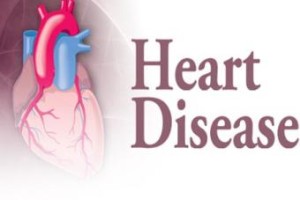- Home
- Editorial
- News
- Practice Guidelines
- Anesthesiology Guidelines
- Cancer Guidelines
- Cardiac Sciences Guidelines
- Critical Care Guidelines
- Dentistry Guidelines
- Dermatology Guidelines
- Diabetes and Endo Guidelines
- Diagnostics Guidelines
- ENT Guidelines
- Featured Practice Guidelines
- Gastroenterology Guidelines
- Geriatrics Guidelines
- Medicine Guidelines
- Nephrology Guidelines
- Neurosciences Guidelines
- Obs and Gynae Guidelines
- Ophthalmology Guidelines
- Orthopaedics Guidelines
- Paediatrics Guidelines
- Psychiatry Guidelines
- Pulmonology Guidelines
- Radiology Guidelines
- Surgery Guidelines
- Urology Guidelines
Post-menopausal hormone therapy cuts heart disease

New York : A team of US researchers has found that hormone therapy, when taken within six years of menopause, may slow the progression of subclinical atherosclerosis the primary underlying pathway that leads to heart disease and stroke.
The findings suggest that after a median of five years of hormone therapy, women in the early post-menopausal group who were taking estradiol, showed significantly less rate of blocked arteries a condition that can lead to heart disease and stroke, when measured against those taking the placebo.
"Studies on hormone therapy and vascular degeneration, provides strong evidence that the cardiovascular benefits of hormone therapy are dependent on timing of initiation," said Howard N. Hodis from Keck School of Medicine at the University of Southern California in the US.
The researchers examined the hypothesis that the cardiovascular effects of post-menopausal hormone therapy vary with the timing of hormone therapy initiation.
The team conducted a study, published in the New England Journal of Medicine, Early versus Late Intervention Trial with Estradiol (ELITE) in over 600 post-menopausal women with no history of cardiovascular disease or diabetes.
They were stratified into two groups: early post-menopause women who were within six years of menopause and late post-menopause women who were 10 years or more beyond menopause.
Women in each group were randomly assigned to receive either oral estradiol with progesterone vaginal gel for those with a uterus or a placebo which included a placebo vaginal gel for those with a uterus.
"ELITE provides proof of concept and first direct evidence from human investigation that timing of hormone therapy is imperative for success in the prevention of atherosclerosis progressio," Hodis added."The stratification of participants into early and late post-menopause was a unique feature of ELITE. We believe that applying this design to further examination of heart disease prevention could ultimately prove immensely fruitful for women's health," Hodis noted.
The concept of timing of initiation of an intervention is likely applicable to most preventive approaches to cardiovascular disease in women, the authors stated.
cardiovascular diseasediabetesEarly versus Late Intervention Trial with EstradiolELITEHeart diseasehormone therapyHoward N. HodisKeck School of Medicinestroke
Source : IANSNext Story
NO DATA FOUND

Disclaimer: This site is primarily intended for healthcare professionals. Any content/information on this website does not replace the advice of medical and/or health professionals and should not be construed as medical/diagnostic advice/endorsement or prescription. Use of this site is subject to our terms of use, privacy policy, advertisement policy. © 2020 Minerva Medical Treatment Pvt Ltd